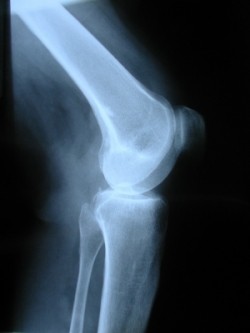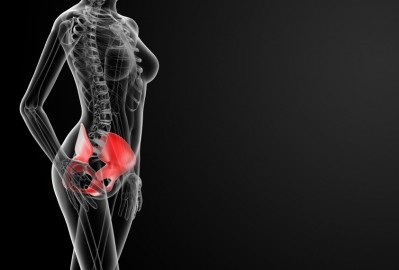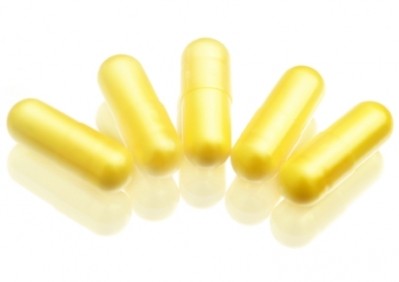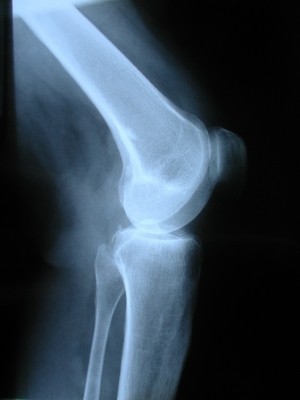Vitamin D, calcium-fortified dairy may boost bone health for women

Daily consumption of milk and yogurt fortified with 1,200 mg of calcium and 7.5 micrograms of vitamin D3 for the first 12 months, and then 22.5 micrograms for another 18 months, produced significant increases in the bone mineral density (BMD) of post-menopausal women with lower than normal BMD (osteopenic), according to findings published in the European Journal of Clinical Nutrition.
Researchers from Harokopio University and the University of Athens, led by Dr Yannis Manios, examined the effects of the fortified dairy on a variety of markers linked to bone strengthening and weakening. Their results indicate that the combination of vitamin D and calcium led to significant decreases in levels of a compound called C-terminal telopeptides (CTx) after six and 12 months of intervention. CTx is associated with bone weakening by the breakdown of type-I collagen in the bone. No such beneficial decreases were observed in the control group.
“Increasing dietary intake of calcium and vitamin D through fortified dairy products in osteopenic postmenopausal women appears to be effective in producing favorable changes in several bone metabolism and bone mass indices and in counterbalancing seasonal variations in hormonal and biochemical molecules,” said the researchers.
The study was funded by a research grant by Friesland Foods Hellas.
History of use
The combination of vitamin D and calcium has long been recommended to reduce the risk of bone fracture for older people, particularly those at risk of or suffering from osteoporosis, which is estimated to affect about 75m people in Europe, USA and Japan.
The action of the nutrients is complimentary, with calcium supporting bone formation and repair, while vitamin D helps the body absorb calcium.
Indeed, the European Food Safety Authority (EFSA) accepted a health claim linking calcium and vitamin D to bone health in older women in 2008 following a disease-reduction claim application, made under article 14 of the European Union’s nutrition and health claims regulation and submitted by Abtei Pharma Vertriebs, a GlaxoSmithKline company.
The dossier claimed that chewing tablets with calcium and vitamin D improves bone density in women over the age of 50, and may reduce the risk of osteoporotic fractures and hip fractures. The proposed dosages were 1000mg calcium and 800 IU vitamin D3.
Study details
The Athens-based scientists recruited 40 postmenopausal women aged between 55 and 65 years old, and randomly assigned them to the control or dairy group. The dairy group received fortified dairy products (supplied by Friesland Foods Hellas) fortified with calcium and vitamin D3 (vitamin D3 in a carrier of dicalcium phosphate and tricalcium phosphate, Watson Foods Co, Inc.). The control group received no dairy and continued their normal daily lives for 30 months.
The initial daily doses of calcium and vitamin D3 used were 1,200 mg and 7.5 micrograms, respectively, but the vitamin D3 dose was increased after 12 months to 22.5 micrograms per day for another 18 months. The increase in the dose of vitamin D3 was based “on new emerging scientific evidence suggesting the need of combined supplementation with calcium and vitamin D in the order of 1,000–1,200 mg calcium and 17,5–20 micrograms of vitamin D daily in osteopenic postmenopausal women”, explained the researchers.
CTx levels decreased significantly in the dairy group after six (-0.08) and 12 (-0.03) months of intervention, but then remained unchanged during the rest of the intervention. Results also showed beneficial changes to levels of a marker called receptor activator of nuclear factor-kappaB ligand (RANKL), which is linked to bone weakening: RANKL levels were significantly reduced after 30 months of fortified dairy intake, while they increased in the control group.
“Increasing dietary intake of calcium and vitamin D in osteopenic postmenopausal women appears to be effective in producing favorable changes in several bone metabolism and bone mass indices and in counterbalancing seasonal variations in hormonal and biochemical molecules,” wrote the researchers.
Fracture risks
Estimates suggest that in the absence of primary prevention the number of hip fractures worldwide will increase to approximately 2.6 million by the year 2025, and 4.5 million by the year 2050.
Osteoporosis weakens bone strength which increases the likelihood of hip fracture, a problem that increases with age.
Source: European Journal of Clinical Nutrition
Published online ahead of print, doi: 10.1007/s00394-010-0142-7
“Calcium and vitamin D supplementation through fortified dairy products counterbalances seasonal variations of bone metabolism indices: the Postmenopausal Health Study”
Authors: R. Tenta, G. Moschonis, M. Koutsilieris, Y. Manios
















